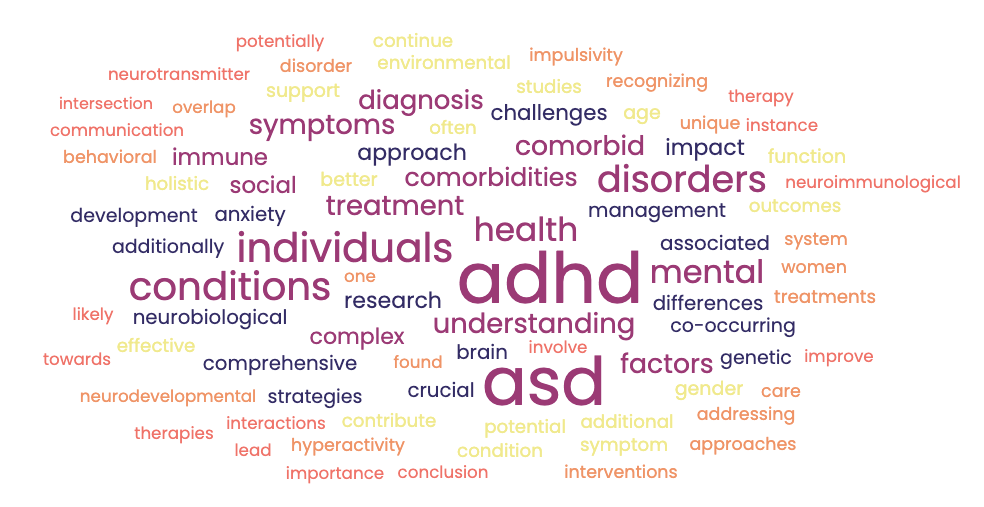Navigating the complex landscape of diagnosing Attention Deficit Hyperactivity Disorder (ADHD) can be a challenging aspect for those dealing with the condition—be it the individuals themselves, caretakers, or educators. With an upsurge in awareness and discussion around ADHD, a vital query has emerged—can therapists play a diagnostic role in identifying and managing this condition that affects millions of lives worldwide? This blog post, breaking from the conventional diagnostic path, seeks to uncover the perspectives, processes, and potential of therapists in the realm of ADHD diagnosis and treatment.
In order to diagnose ADHD, therapists, specifically psychologists, must have advanced education and training in psychology, neuropsychology, or psychiatry. They must also be familiar with different types of assessment tools used to evaluate emotional and cognitive functioning. These include both self-report questionnaires and external observation assessments that allow the therapist to observe how their client processes information and interacts with their environment. This will help them determine if the symptoms are consistent with an ADHD diagnosis or another underlying condition such as anxiety or depression.
Understanding ADHD
ADHD is a neurodevelopmental disorder typically characterized by problems with attention, including difficulty sustaining attention, hyperactivity, and impulsive behavior. For the individuals contending with it, ADHD often presents a significant challenge in various aspects of life, be it school, work, or social interactions. Recognizing the symptoms and seeking a diagnosis is crucial in managing the condition effectively.
The Significance of Early Identification
Early identification is key as it allows for timely intervention, better academic support, and the learning of adaptive strategies. With statistics showcasing that as many as 10% of school-aged children have been diagnosed with ADHD, understanding and detecting the symptoms early can pave the way for a more supportive environment, at home, and in academic settings. This is where therapists can play a crucial role.
Why Seek Therapist’s Help?
While ADHD is commonly associated with children, it can continue well into adulthood. Adults who have not received a proper diagnosis and treatment for their ADHD may experience difficulties in areas such as relationships, work, and self-esteem. Seeking the help of a therapist can aid in identifying and managing ADHD symptoms, regardless of age.
Therapists and ADHD Diagnosis
In general, therapists that are not psychologists are not able to provide a formal diagnosis for ADHD as it requires specialized training and expertise. However, therapists can play a vital role in the diagnostic process by conducting initial assessments, gathering information from family members or teachers, and referring individuals to appropriate medical professionals for further evaluation.
Gathering Information and Assessing Symptoms
Therapists can conduct initial screenings for ADHD by gathering information about an individual’s symptoms, family history, and developmental delays. They may also use standardized rating scales to assess the severity of ADHD symptoms. This information can then be used to determine whether a referral for a formal evaluation is necessary.
Collaborating with Other Professionals
In addition to conducting initial assessments, therapists can also collaborate with other professionals involved in the diagnostic process. This may include psychologists, neuropsychologist, psychiatrists, and pediatricians who have specialized training and experience in diagnosing ADHD.
Diagnosing ADHD
Diagnosing ADHD is a rigorous process that typically involves a range of medical professionals including pediatricians, psychiatrists, and clinical psychologists. The diagnosis is usually made after observing the presence of multiple symptoms that create functional impairment.
Therapists in the Diagnostic Process
Therapists, including licensed counselors, social workers, and psychotherapists, can play an essential role in observing and reporting symptoms associated with ADHD. Their counsel can be valuable, especially when they have an established rapport with the individual or are part of a multi-disciplinary team.
The Interdisciplinary Approach to Adult ADHD Diagnosis
The diagnosis of Attention Deficit Hyperactivity Disorder (ADHD) in adults requires a comprehensive and interdisciplinary approach, involving professionals from psychology, psychiatry, and neuropsychology. Each of these fields plays a unique and crucial role in identifying and understanding the complexities of ADHD in the adult population.
Psychology and Initial Assessments
Clinical psychologists are often the first line of assessment for adults suspecting they may have ADHD. They utilize a combination of clinical interviews, behavioral observations, and psychometric tests to evaluate an individual’s symptoms in relation to the established diagnostic criteria for ADHD. Psychologists are adept at identifying the nuanced ways in which ADHD symptoms manifest in adults, which can differ significantly from the symptoms observed in children.
Psychiatry and Medical Management
Psychiatrists play a pivotal role in the medical management of ADHD in adults. After a potential diagnosis is identified by a psychologist, psychiatrists can prescribe medication as part of the treatment plan. They assess the individual’s medical history and current health status to tailor a medication regimen that can effectively mitigate the symptoms of ADHD. Psychiatrists also monitor the patient’s response to medication over time, adjusting dosages as necessary to achieve optimal outcomes.
Neuropsychology and Cognitive Assessment
Neuropsychologists contribute to the diagnosis of adult ADHD through detailed cognitive assessments. These assessments evaluate various aspects of brain function, including memory, executive functioning, attention, and processing speed. Neuropsychological testing can help differentiate ADHD from other cognitive disorders that may present with similar symptoms, providing a clearer picture of the individual’s cognitive strengths and weaknesses. This information is crucial for developing targeted interventions that address the specific needs of the individual.
In sum, the diagnostic process for ADHD in adults is intricate and necessitates the combined expertise of psychology, psychiatry, and neuropsychology. By leveraging the distinctive skills and knowledge of these disciplines, professionals can ensure a thorough and accurate diagnosis, paving the way for effective treatment and management of ADHD in adults. And throughout this process, therapists continue to play a vital role in providing support and interventions for individuals with ADHD. Overall, early identification, collaboration among professionals, and individualized treatment plans are essential for effectively managing ADHD and improving the quality of life for those affected by it.
Therapeutic Interventions for ADHD
Therapy is one of the core elements in managing ADHD, often used in conjunction with medication. Various therapeutic approaches are effective in addressing the different facets of the disorder.
Behavioral Therapy
Behavioral therapy focuses on modifying behaviors through reinforcement techniques. For children and adults with ADHD, this can mean encouraging and rewarding the adoption of specific behaviors like focusing on tasks and controlling impulsivity. It can also involve addressing negative behaviors through consequences, effectively reducing their frequency.
Cognitive Behavioral Therapy (CBT)
Cognitive Behavioral Therapy (CBT) is another impactful technique for managing ADHD, particularly helpful for older children, adolescents, and adults. CBT focuses on identifying and changing negative thought patterns and behaviors. It encourages individuals to challenge distorted beliefs and develop more positive thinking, leading to better behavioral outcomes. It is particularly effective in managing the emotional dysregulation aspect often associated with ADHD. For those with ADHD, CBT interventions can specifically target issues such as time management, organization, and planning skills, thereby addressing some of the executive functioning deficits associated with ADHD. By learning to manage their thoughts and behaviors, individuals can improve their focus, reduce impulsivity, and enhance overall functioning in daily activities.
Social Skills Training for ADHD
Social Skills Training (SST) is particularly beneficial for individuals with ADHD, as it helps address some of the social challenges they face. This form of therapy focuses on improving interpersonal skills, which includes learning how to read social cues, understanding the importance of eye contact, and developing better listening skills. For many with ADHD, difficulties in these areas can lead to social isolation and strained relationships. SST provides structured environments where individuals can practice these skills in real-life scenarios, under the guidance of a therapist, thereby gradually enhancing their social competence and confidence.
Family Therapy and Support
ADHD does not just affect the individual but often has widespread implications for family dynamics. Family therapy and support can be invaluable in creating a harmonious family environment and understanding the challenges each member may face.
Considerations for Parents and Educators
Parents and educators are pivotal in the support system for individuals with ADHD. Understanding the diagnostic process, and involving the right professionals, is crucial in catering to the unique needs of those affected by the disorder.
Seeking Professional Help
The road to a diagnosis of ADHD can be overwhelming. Seeking professional help from a specialist experienced in ADHD can ensure a comprehensive evaluation that considers all aspects of the individual’s life.
Collaborating with Therapists for Comprehensive Care
A collaborative approach between therapists, education specialists, medical professionals, and the individual’s support network can provide a more robust care plan, ensuring that interventions are integrated and supportive across all environments.
Challenges in Diagnosing ADHD
The diagnosis of ADHD is not without controversy. Overdiagnosis can lead to unnecessary medicalization of developmental behaviors, while underdiagnosis can result in inadequate support for those who genuinely require intervention. Furthermore, there is a lack of culturally sensitive assessment tools, making it challenging to accurately diagnose ADHD in diverse populations.
Over-diagnosis and Under-diagnosis Concerns
Balancing the need to diagnose those truly affected with avoiding ‘bandwagon’ diagnosing is an ongoing concern. Similarly, underdiagnosis is a problem, as many individuals, especially girls and adults, slip through the cracks.
Cultural and Societal Influences on Diagnosis
Cultural perceptions of behavior and the increasing demands of a competitive educational landscape can impact diagnostic rates. It’s important to contextualize behavior within individual cultural and environmental factors.
Empowering Individuals with ADHD
Beyond the diagnosis, empowering individuals with ADHD to manage their symptoms is an integral part of therapy. By equipping them with tools and strategies, therapy helps in fostering a sense of control and boosting self-esteem.
Self-Management Strategies
Cultivating self-awareness and employing self-management strategies, such as time management techniques and the use of planners, can significantly improve day-to-day challenges associated with ADHD.
Building a Support Network
Having a strong support network, from family and friends to support groups and mentors, can make a substantial difference in the lives of those with ADHD. Therapy often serves as the nexus for building and expanding such networks.
Conclusion
While general therapists may not typically diagnose ADHD, their role in the process is invaluable. From observational insights to the formulation of treatment plans, therapists are critically positioned to contribute to the understanding and management of ADHD. It is imperative for anyone considering an ADHD diagnosis to approach the process with a collaborative mindset, leveraging the expertise of a broad range of professionals to ensure the best possible outcome.
In navigating the world of ADHD diagnostic and therapeutic approaches, the takeaway is the importance of a well-rounded, individual-centric approach. The future of ADHD management likely lies in the fusion of traditional medical diagnosis with the expertise of mental health professionals, without losing sight of the person behind the diagnosis. Awareness, understanding, and an integrated approach are the keys to unlocking the potential of those with ADHD and enabling them to thrive.







